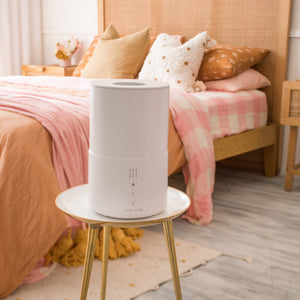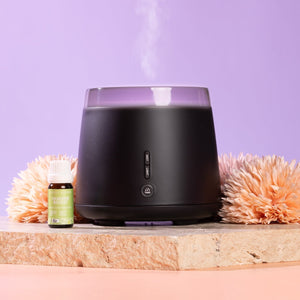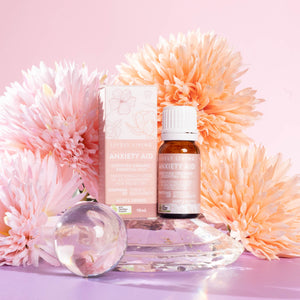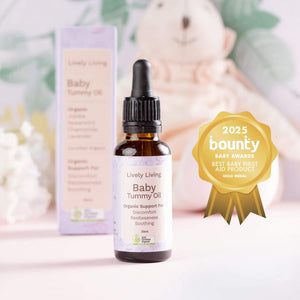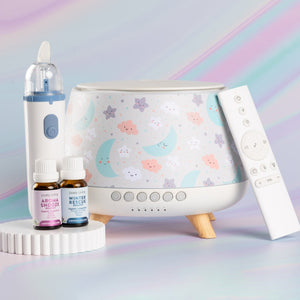Benefits of Using a Nasal Aspirator for Your Baby's Health
As a new parent, you'd do anything to keep your little one healthy and happy. But when your baby's nose is stuffy, it can be tough to know how to help. That's where a nasal aspirator comes in - this small but mighty tool can be a real lifesaver!
I remember the first time I used a nasal aspirator on my own baby. I was nervous, but I knew I had to do something to help her breathe easier. And you know what? It worked like a charm. He slept better, ate better, and was just overall more comfortable.
Wondering how to help your baby feel more comfortable? A nasal aspirator is just the thing! It's a simple way to remove pesky mucus and keep your baby's nose clear.
Table of Contents:
- What Is a Nasal Aspirator and How Does It Work?
- Benefits of Using a Nasal Aspirator for Babies
- How to Clean and Maintain a Nasal Aspirator
- When to Consult a Healthcare Provider
- FAQs in Relation to Benefits of Using a Nasal aspirator
- Conclusion
What Is a Nasal Aspirator and How Does It Work?
If you've ever had a congested baby, you know the struggle is real. They can't blow their own nose, so they're miserable. And when baby's miserable, everyone's miserable. Enter the nasal aspirator - a small but mighty tool that can help clear your baby's nasal passages and let everyone breathe a little easier.
Types of Nasal Aspirators
There are a few different types of nasal aspirators out there. The most basic is the good old bulb syringe. This type is not that effective, though is cheap. You squeeze the bulb, place the tip in baby's nostril, and release to suck out the mucus. Then there are manual nasal aspirators that use your own suction power. You place one end in baby's nostril and the other in your mouth (with a filter in between,) and gently suck to remove the mucus. Though nothing compares to the electric nasal aspirators that use USB rechaereable power to create that suction. Lively Living offer a Nasal Aspirator that is the latest technology and the best available.
USB RECHAREABLE NASAL ASPIRATOR IS THE BEST CHOICE
How to Use a Nasal Aspirator
Using a nasal aspirator is pretty straightforward, but there are a few tips to keep in mind: 1. Make sure baby is calm and comfortable. A screaming baby and a nasal aspirator don't mix. 2. Squeeze a couple drops of saline solution in baby's nose first to help loosen the mucus. 3. Gently place the tip of the aspirator just inside baby's nostril. Don't go too far in. 4. If using a bulb syringe, squeeze and release. If using a manual or electric aspirator, suck gently and steadily. 5. Repeat on the other side. Then give baby a big cuddle because they were so brave.
Safety Precautions When Using a Nasal Aspirator
As with anything going near baby's face, safety is key. Always read the instructions that come with your nasal aspirator and follow them carefully. Make sure to clean the aspirator thoroughly after each use with hot, soapy water. Some can even go in the dishwasher. Let it air dry completely before storing. Never share nasal aspirators between children to avoid spreading germs. And if the aspirator looks damaged or worn out, toss it and get a new one.
Benefits of Using a Nasal Aspirator for Babies
So why bother with this snot-sucking business? Turns out, there are quite a few benefits to keeping baby's nose clear.
Improved Breathing and Comfort
The most obvious benefit is that it helps baby breathe easier. Removing excess mucus from the nasal passages means more room for air to flow. And a baby who can breathe is a happy baby. Using a nasal aspirator can provide immediate relief from nasal congestion and help your little one feel more comfortable. No more snorting, snuffling, or struggling to breathe.
Better Sleep
Ever tried to sleep with a stuffy nose? It's miserable. Now imagine being a tiny baby who can't even mouth breathe yet. Using a nasal aspirator before bed can help clear baby's nose and lead to a more restful night's sleep for everyone.
Reduced Risk of Infections
All that mucus is a breeding ground for bacteria. Removing excess mucus regularly can help reduce the risk of those bacteria causing an infection. This is especially important for premature babies or those with weakened immune systems. Keeping their little noses clear can help keep them healthy.
Easier Feeding
If you've ever tried to feed a congested baby, you know it's no picnic. They may struggle to breathe while eating and unlatch frequently. Clearing the nasal passages before feeding can help baby eat more comfortably and efficiently. And that means a happier baby and a happier mom.
For your childs overall health, a cool mist humdifier and nasal aspirator work hand in hand to help your child breathe, sleep and feed better. The Sniffle Survival Bundle from Lively Living is our top pick.
How to Clean and Maintain a Nasal Aspirator
Now that you're a nasal aspirator convert, let's talk about keeping that little tool clean and in tip-top shape.
Cleaning Instructions for Different Types of Nasal Aspirators
For bulb syringes, squeeze out any remaining mucus and rinse with hot, soapy water. You can also use a pipe cleaner or small brush to scrub inside the bulb. Rinse thoroughly and allow to air dry. Manual nasal aspirators usually come apart for easy cleaning. Wash all parts with warm, soapy water or run through the dishwasher. Make sure it's completely dry before reassembling. For electric aspirators, follow the manufacturer's instructions for cleaning. Most have removable parts that can be washed with soapy water.
Proper Storage
Once your nasal aspirator is squeaky clean, store it in a cool, dry place away from direct sunlight. Some come with a handy storage case to keep all the parts together. If using a bulb syringe, make sure it's completely dry before storing to prevent mold growth. You can hang it with the bulb pointing down to allow any remaining water to drip out.
When to Replace Your Nasal Aspirator
Even with proper cleaning, nasal aspirators don't last forever. If you notice any cracks, tears, or mold, it's time to toss it and get a new one. Bulb syringes need replacing every few months or sooner if the bulb starts to lose its shape or flexibility. Electric aspirators last longer and are the best investment for your childs health.
When to Consult a Healthcare Provider
While nasal aspirators are generally safe and effective, there are times when you should seek medical advice.
Signs of Respiratory Distress
If your baby is having difficulty breathing, has a persistent cough, or their skin turns bluish, call your healthcare provider right away. These could be signs of a more serious issue like respiratory distress or an infection.
Persistent Nasal Congestion
If you've been using the nasal aspirator regularly but baby's congestion isn't improving after a few days, it's time to check in with your doctor. They may recommend other treatments or want to rule out any underlying conditions.
Frequent Use of Nasal Aspirator
Using a nasal aspirator a few times a day when baby is congested is perfectly fine. But if you find yourself reaching for it multiple times a day for weeks on end, talk to your pediatrician. Your doctor can help determine if there's an underlying issue causing the constant congestion. The bottom line? Nasal aspirators are a handy tool for any parent dealing with a congested baby. They're safe, effective, and can provide much-needed relief for your little one. Just remember to use them gently, clean them regularly, and don't hesitate to ask your doctor if you have any concerns.
FAQs in Relation to Benefits of Using a Nasal aspirator
What are the benefits of nasal aspirator?
Nasal aspirators clear your baby's nose, helping them breathe, sleep, and feed better. They're a game changer for stuffy noses.
Is it OK to use a nasal aspirator on a newborn?
Absolutely. An electric nasal aspirators gently on newborns can safely remove mucus without hassle.
What are the disadvantages of nasal aspirators?
If used too often or incorrectly, they can irritate your baby's nostrils or lead to nosebleeds. Always follow directions closely.
How often should you use nasal aspirator?
Limited to when necessary – like during colds for clearer breathing. Overuse could annoy those tiny noses.
Conclusion
Using a nasal aspirator is a simple but effective way to help your baby breathe easier and feel more comfortable. By removing excess mucus, you're not only helping them sleep better and eat more easily, but you're also reducing the risk of infections and other complications.
Remember, it's important to use the aspirator gently and safely, and to clean it thoroughly after each use. With a little practice and patience, you'll be a pro in no time!
Don't hesitate to include a nasal aspirator in your baby care arsenal. When your bundle of joy is congested, this tool is a lifesaver. It's designed to safely and effectively remove mucus, allowing your baby to breathe, eat, and sleep more comfortably. With a nasal aspirator at your fingertips, you'll feel empowered to tackle any stuffy nose that comes your way.
If you have any questions, reach out to the Lively Living team.
We are here to help
Julei and the Lively Living team













